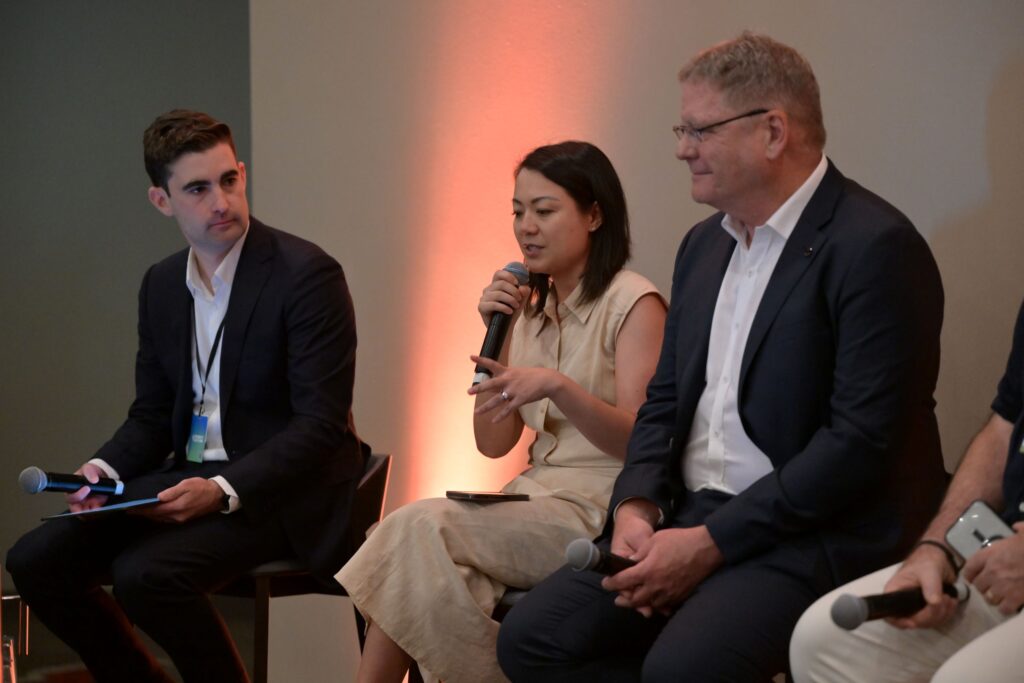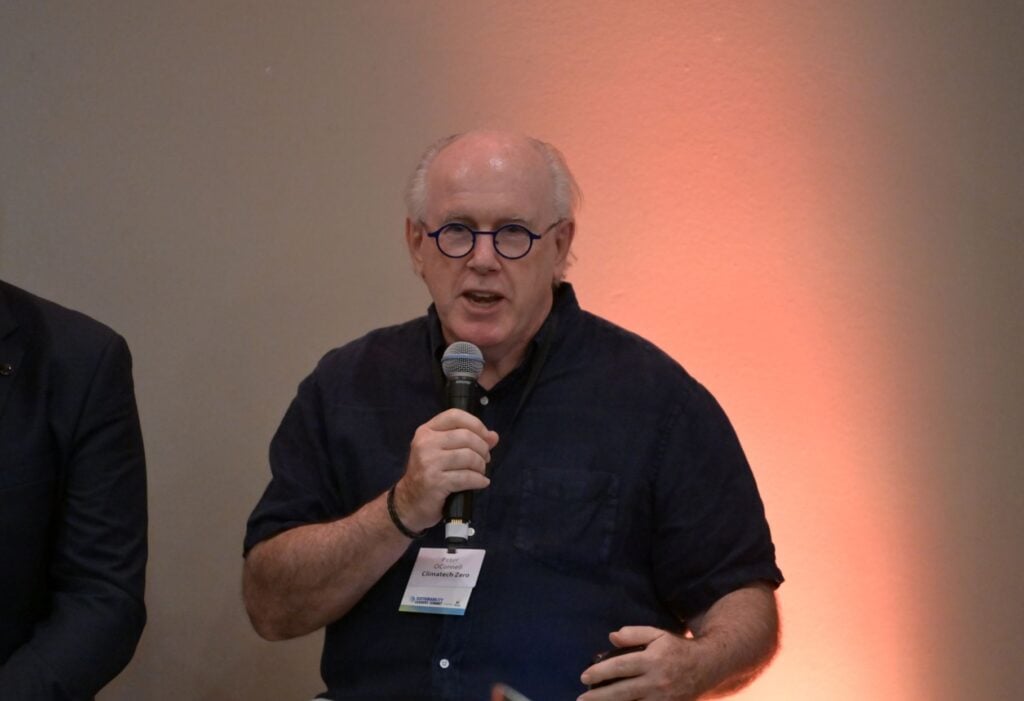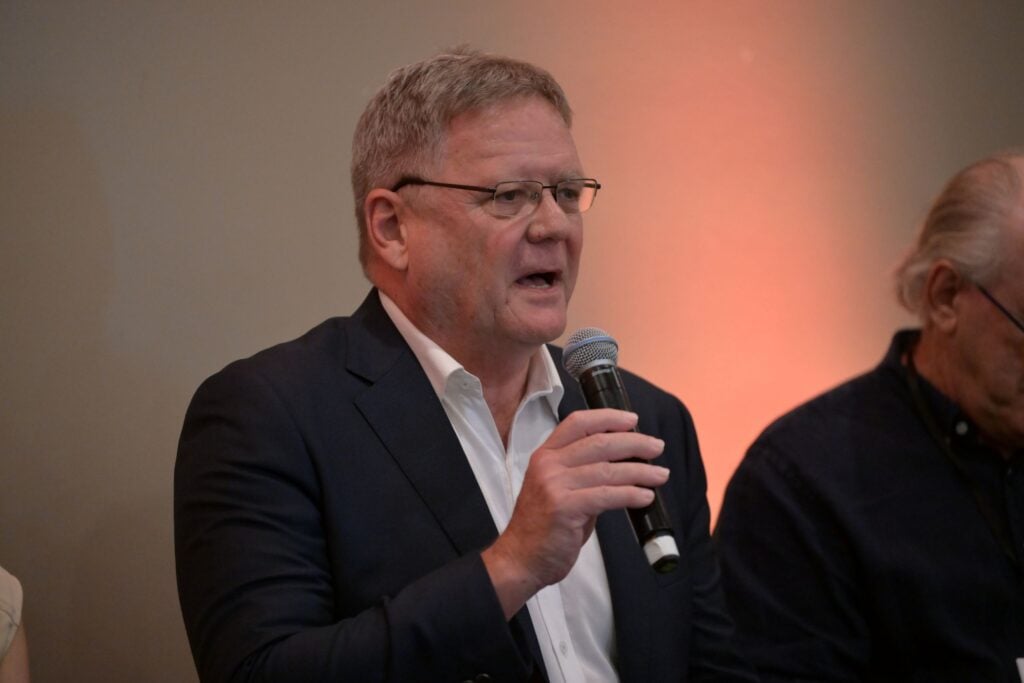Decarbonisation in Action: Key Insights for Business Leaders
Introduction
The business case for decarbonisation has never been stronger, yet many businesses still struggle with transforming their sustainability strategies into tangible action. As organisations across industries grapple with this transformation, three critical hurdles dominate: justifying investments financially, overcoming implementation barriers and integrating new technologies effectively.
This was the strategic context that drove discussions during the recent executive roundtable hosted by Origin Zero, supported by Connect Media. Following the theme of Decarbonisation in Action, the roundtable convened industry leaders to address the gap between decarbonisation ambition and action. Discussions centered on overcoming three persistent hurdles: financial justification, implementation barriers, and seamless technology integration. Conversations were led by Liam McWhirter, General Manager, Strategic & Enterprise Partners, Origin Zero, with exclusive insights from Peter O’Connell, Co-founder & Managing Director, Climatech Zero, Chau Le, General Manager, Origin Zero and Bill Truscott, Group Manager, Customer Solution Development & Emerging Technology, Origin Zero.
This article reflects a snapshot into the afternoon’s discussions.

Building the Business Case for Decarbonisation: From Cost to Competitive Advantage
Many businesses understand the importance of decarbonisation but struggle with justifying investment. While the transition’s complexity can feel overwhelming, proven models now deliver both environmental impact and strong returns. As Peter O’Connell, Co-founder of Climatech Zero, emphasised during the roundtable: “ROI payback of three years or under is critical in today’s capital-constrained environment.” This financial benchmark reflects today’s practical reality: decarbonisation has evolved from a cost burden to profit driver for those who leverage the right solutions.
Leaders must identify the clear financial value and measurable business outcomes of their decarbonisation initiatives if they are to secure executive buy-in. As Chau Le, General Manager, Origin Zero shared during the roundtable, “Start with the low-hanging fruit. Start with trials where falling costs, incentives and operational savings already deliver strong ROI.” By piloting smaller-scale projects, leaders can derisk investment and ultimately guide organisational buy-in. Waiting for the perfect conditions however to trial larger-scale initiatives can prolong success and cause businesses to fall behind on long-term transition goals.
By prioritising quick wins and identifying clear business value in initiatives, companies can truly transform their decarbonisation ambitions into tangible actions profitably.
Breaking the Execution Barrier
The transition from sustainability planning to execution reveals a critical gap for leaders: decarbonisation stalls where strategy meets real-world constraints. As Bill Truscott, Group Manager, Customer Solution Development & Emerging Technology at Origin Zero, highlighted during the roundtable, “Storage is the linchpin in our renewable energy transition. How we store power will determine how fast we can decarbonise for the future.” This storage imperative mirrors a wider truth: execution requires both tech and business model innovation. As leaders continue to grapple with this principle, three approaches are proving particularly effective:
Implementation Strategies: Leading businesses are starting with targeted pilot projects before committing to large-scale rollouts. This staged approach allows businesses to validate technologies, build internal confidence, and refine operations while minimising upfront investment – turning theoretical strategies into proven solutions.
Innovative Financing Structures: New commercial models are transforming how businesses fund their transitions. The shift from capital expenditures to operational expense models – including performance-based contracts and managed services – helps organisations preserve liquidity while accelerating decarbonisation timelines.
Revenue Transformation: Leading businesses are moving beyond compliance-driven sustainability to unlock new value streams. From monetising energy storage through grid services to creating customer offerings around clean energy, these opportunities are turning decarbonisation into a source of competitive advantage.
Together, each of these approaches are transforming decarbonisation from economic burden to business opportunity, all while overcoming the execution bottleneck.


Seamless Integration: Balancing Innovation & Operations
Successful technology integration requires operational-first thinking. As Chau Le highlighted during the roundtable, “It’s not just about installing solutions, it’s about engineering them to work seamlessly within existing workflows.” This philosophy translates into three guiding approaches that leading businesses are adopting:
Future-Proof Infrastructure: Strategic design now builds tomorrow’s energy needs into today’s facilities – whether through EV-ready electrical systems or modular conduits that enable phased upgrades. This forward-looking approach prevents costly retrofits while maintaining operational continuity.
Smarter Load Management: Intelligent systems are unlocking hidden capacity within existing infrastructure. Dynamic load optimisation tools balance energy demands in real-time, deferring expensive grid upgrades while accommodating new decarbonisation technologies.
The Modular Advantage: Scalable solutions allow organisations to start small and grow capability alongside operational confidence. This graduated adoption path derisks implementation while proving value at each stage.
The sweet spot for businesses is where decarbonisation feels less like a disruptive project and more like a performance upgrade. By combining adaptive technical solutions with business-centric strategy, companies can deliver both sustainability and operational value without disruptive overhauls.
The Road Ahead: Scalable Decarbonisation
Three capabilities will separate decarbonisation leaders from the laggards. By reframing sustainability investments as value generators through clear performance metrics and ROI, leaders can unlock the necessary buy-in needed for scaling projects. Through strategic implementation that builds operational confidence, leaders can derisking capital commitments and drive organisational buy-in. With intelligent integration that aligns technology solutions with core business workflows, leaders can generate increased business value and environmental impact without disruption.
As James Macgill, Origin Zero’s Executive General Manager, highlighted during the Sustainability Leaders Summit 2025: “We already have 90% of the technology and solutions we need – the challenge is no longer about invention, but execution. We need to reframe sustainability from being an economic burden to recognising it as a genuine business opportunity.” The technology solutions are available, the differentiator now lies in execution capability. Organisations that embrace this action-oriented mindset will discover that decarbonisation isn’t just an environmental necessity, but one of today’s most potent drivers of operational efficiency and competitive advantage. The time for planning has passed; the time for implementation is now.










